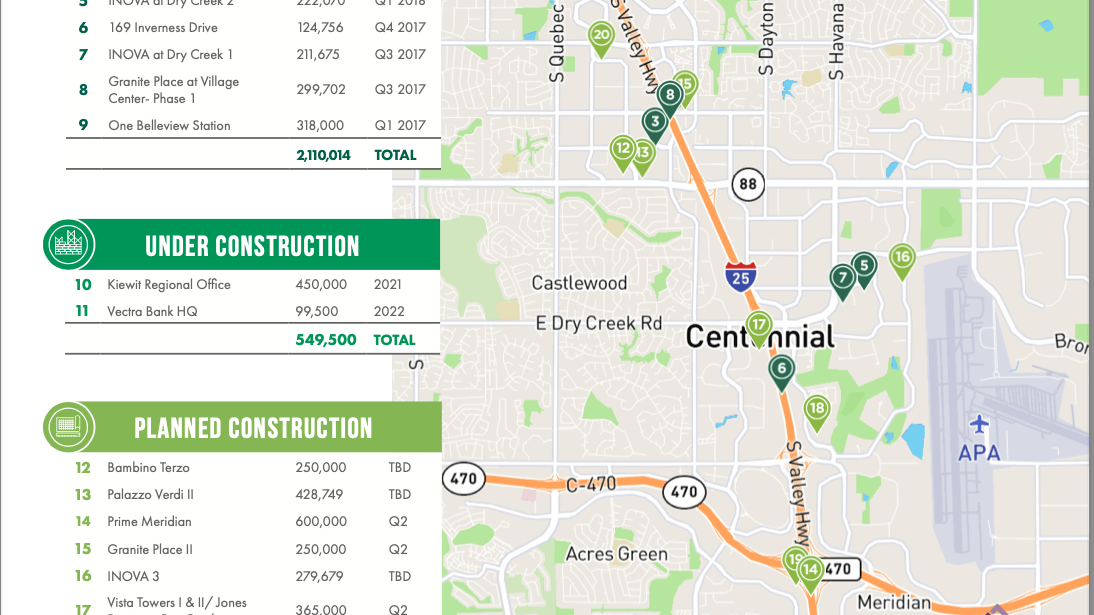When Amazon announced that it would open a second headquarters outside of its Seattle home, it turned the exercise of business site selection into something more like The Bachelor.
Can’t you just imagine Jeff Bezos handing a rose to the city of Denver?
While a project the size of Amazon’s has its own considerations, site selection is one of the most important factors for any business, big or small. Even in the digital age, where access to a global economy is increasing no matter where you’re based, site selection can still be a deciding factor whether your business succeeds or goes the way of the dodo.
Whether you’re expanding, moving or launching something new, these are some of the most crucial elements to pay attention as you consider all the options:
A good business climate
Seems like a no-brainer that you’d want to locate a business somewhere with a good business climate. But what does that really mean?
It turns out that a good business climate is as much about finding a healthy balance of taxes and regulations as it is about finding somewhere your future employees will find desirable to live. It’s easy to overlook, because quality of life can be subjective, and many factors, like weather, are out of your control.
But AreaDevelopment has come up with some way to quantify and measure whether your future business home will meet the quality of life markers needed to attract the best and brightest workers.
They break it down into four measurable categories that impact quality of life: public safety, public education, child welfare and recreation. Take a look at measurements like crime rates, education rates, childhood poverty and access to recreation, and you might be able to quantify whether the site you’re considering will offer the quality of life you need. We’d also add transportation to that list, ensuring that commutes are as painless as possible.
That’s not to say that tax incentives and regulations shouldn’t play a role, but particularly if you’re looking to attract high-tech workers, this is a critical aspect that is easy to forget.
Seek diverse opinions
It’s very easy to go into the site-selection process with preconceived notions, even when you don’t think you have them.
Maybe it’s a desire to be near home, or fond memories from a vacation. It’s easy to get excited about the prospect of being able to hit the beach every day or see extended family more often, but does that really make it a good place to locate your business?
It’s important to bring in a wide array of opinions and data, and most importantly to be open to what you’re hearing and seeing. Consider partnering with location consultants, and particularly in the initial stages, consider all possible options with equal weight.
Although it might be painful when you have to cross your initial choice off the list, approaching the process with objectivity will lead to a smarter, better location choice for your business.
A culture of collaboration
You’re not just finding an office to occupy, you’re finding a community to join.
The last thing you want for your business is to end up in a silo, where there’s no support from local government, no local organizations bringing business leaders together and no sense of collaboration among your peers.
For your business to thrive and to ensure longevity, you’re going to need access to resources, and you’ll need them at different stages of growth. Consider not only if the location you’re selecting is friendly to startups, but also whether there will be support during hypergrowth or maturation into a larger corporation.
In the Denver south area, organizations like Innovators International, Innosphere and TIE Rockies partner with local government and development organizations to support companies throughout various stages. This helps to provide a stable business environment, no matter which stage of your growth your company is in.
Looking for similar organizations and partnerships that foster collaboration in the community will ensure you’re selecting a location that will benefit your business for years to come.
Pay a realistic price
Suggested Reading:
Sure, you could set up shop in a tiny town somewhere in the middle of nowhere for pennies on the dollar. Or, you could rent out a penthouse in Manhattan.
The trick isn’t to get the very best possible deal or to wow investors with an amazing spot that you ultimately can’t afford, it’s to find the sweet spot.
As Jesse Torres writes for Entrepreneur, “Entrepreneurs should be realistic and ready to pay for a good site. An ideal location will contribute toward the enterprise’s success. A poor one will result in rapid closure. Good locations are not cheap.”
When developing your business plan, ensure you’re being realistic about real-estate cost. Look for a middle ground where you’ll be able to check off the most important boxes but understand that you’re not going to get everything.
Do your research on rates in the region and partner with an experience broker who understands nuances the of that location. Holding out for a deal might ultimately hurt your business. Looking for the bowl of porridge that’s just right is a better bet.
Take your pick
Selecting the perfect location for your business is an imperfect artform, but you have a lot of tools at your disposal. Don’t go it alone: ensure you have the people and data you need to ensure an objective selection.
And don’t take it likely: eventually you’ll only have one rose left to give.

